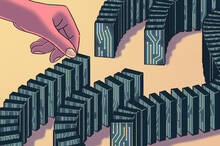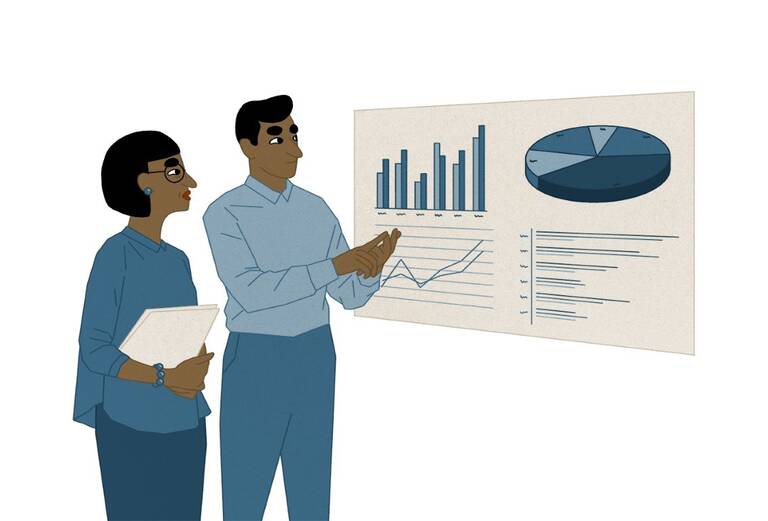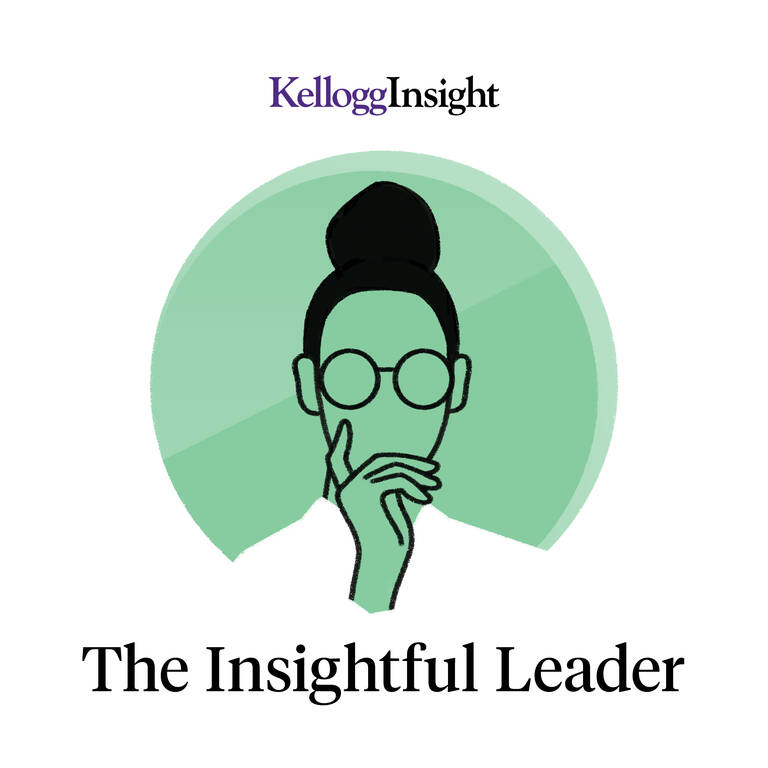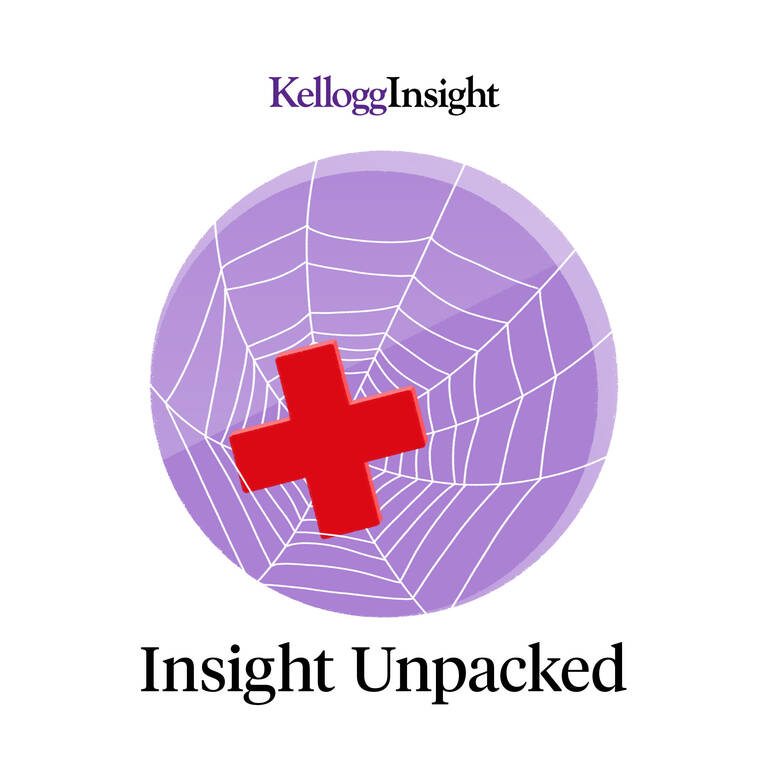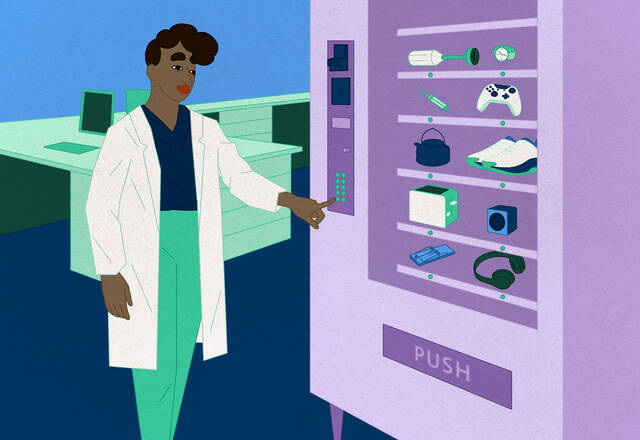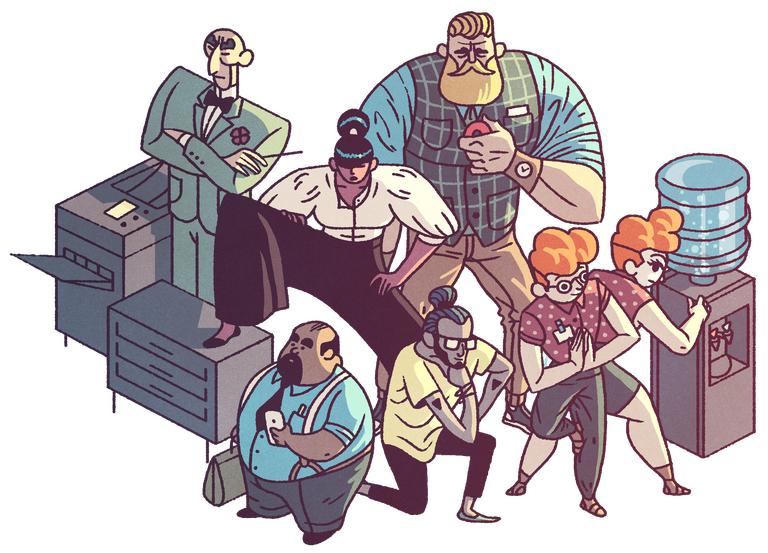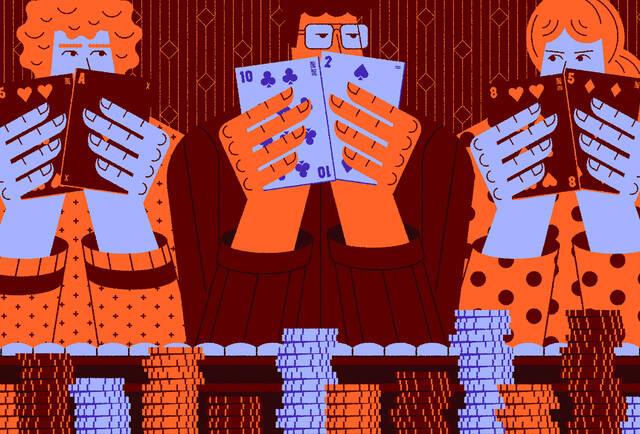
While regulations nudge insurance companies toward prudent portfolios, they may also increase systemic fragility.
Start by finding alternative sourcing locations. And if you don’t have them, build them now.
When Kellogg’s Craig Wortmann lost a portion of his leg to cancer, he felt like he lost part of his identity, too. On this episode of The Insightful Leader podcast, he offers a guide to “bouncing back better.”
Teams that acquire players from their competitors gain an advantage that goes beyond pure skill.
A new type of score looks at people’s shopping behaviors and utility payments to determine their eligibility for loans and credit cards.

“It’s not like we can’t enter a new area and hit a home run, but there’s just a far, far lower chance of that happening.”

In this bonus episode of our series, “Insight Unpacked: American Healthcare and Its Web of Misaligned Incentives,” a healthcare economist must make critical decisions with partial information.
Need some extra motivation to reach your fitness goals? Anthropomorphizing objects can help, new research shows.
For the most part, yes! And the more we look, the better we get.
While increasing bonuses and commission rates might seem like a good idea, doing so can inadvertently harm the quality of an organization’s workforce.
A three-pronged approach—and a generous mindset—can be a huge boon for your career.
The administration hopes to bring back manufacturing and reduce trade deficits. But renegotiating trade may damage global trust in the U.S.
After the Biden administration’s broader approach to regulating competition, expect more-targeted enforcement in the years ahead.

The effect of peer influence “raises some interesting and potentially troubling questions about the nature of expertise and decision-making.”
On this (rerun) episode of The Insightful Leader: You can’t always control what happens at work. But reframing setbacks, and instituting some serious calendar discipline, can go a long way toward reducing stress.
As companies innovate, the resulting complexity makes further growth more challenging.

